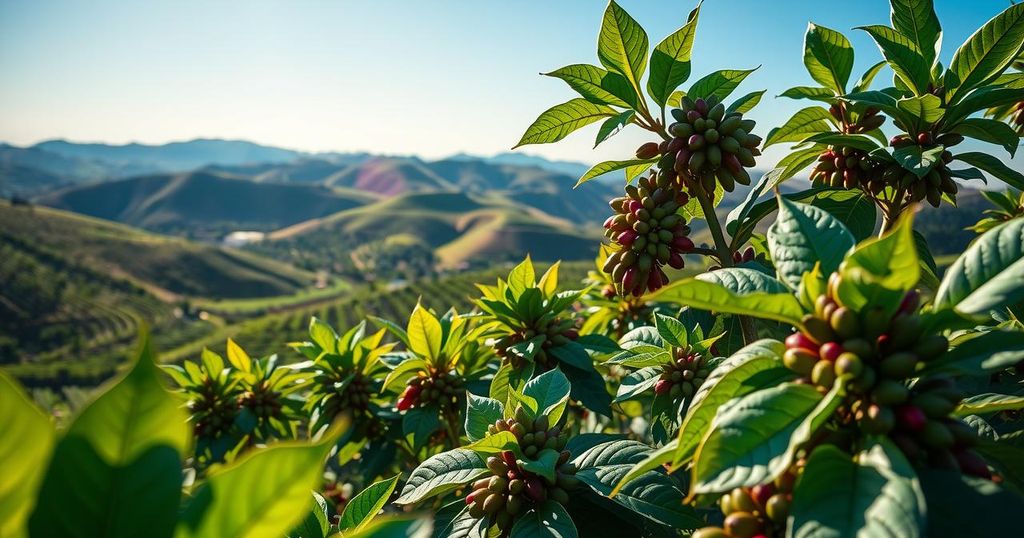Farmers in South Sudan are turning to the climate-resistant excelsa coffee variety to improve their livelihoods amid economic struggles and climate challenges. This rare coffee type offers hope for financial independence, but success requires both market integration and regional stability. Farmers express their determination, despite facing significant obstacles.
In South Sudan, the introduction of excelsa coffee is inspiring hope among local farmers grappling with poverty and climate challenges. Catherine Bashiama, who has nurtured her coffee tree for three years, expressed her joy upon discovering its first fruit buds. The rare climate-resistant variety of excelsa coffee, discovered over a century ago in South Sudan, has generated excitement among local farmers and attracted global interest as the coffee industry faces significant hurdles due to climate change impacts.
Due to increasingly erratic weather, coffee-producing nations are experiencing difficulties, leading to soaring prices. Experts estimate that Brazil, known as the world’s foremost coffee producer, may encounter a 12 percent decline in this year’s crop owing to drought conditions. “What history shows us is that sometimes the world doesn’t give you a choice, and right now, many coffee farmers are suffering from the effects of climate change,” remarked Aaron Davis, the head of coffee research at the Royal Botanic Gardens, Kew, in London.
Excelsa coffee, native to regions including South Sudan, has characteristics that enable it to thrive under adverse conditions, such as drought and high temperatures. This variety is more resilient to pests and diseases compared to traditional coffee types. However, excelsa accounts for less than 1 percent of the global coffee market, significantly overshadowed by arabica and robusta varieties. To address the challenges posed by climate change, excelsa must be validated on a broader scale.
The farmers in South Sudan, like Bashiama, are motivated to cultivate coffee following personal hardships that hindered their ability to grow staple crops. As she strives to provide education for her children, another farmer, 37-year-old Taban John, aims to utilize coffee profits to enhance his business and supply his family with school necessities. Community leaders perceive excelsa coffee as a pathway to financial independence, moving away from dependency on external aid.
Despite these aspirations, stability remains crucial for the successful cultivation of coffee in South Sudan. Elia Box, who lost half of his coffee crop to a fire, underscored the importance of a long-term perspective and peace for agricultural success. “People aren’t thinking long-term when it comes to crops like coffee, especially during war,” Box noted. The journey towards coffee prosperity in South Sudan hinges on both community commitment and regional stability.
The cultivation of excelsa coffee in South Sudan presents a promising opportunity for locals seeking to overcome poverty and the challenges of climate change. As farmers like Catherine Bashiama and Taban John remain hopeful for a sustainable source of income, the broader implications of excelsa coffee’s success will depend on market validation and environmental conditions. Ultimately, stability and communal efforts are paramount for the future viability of coffee farming in the region.
Original Source: www.aljazeera.com




